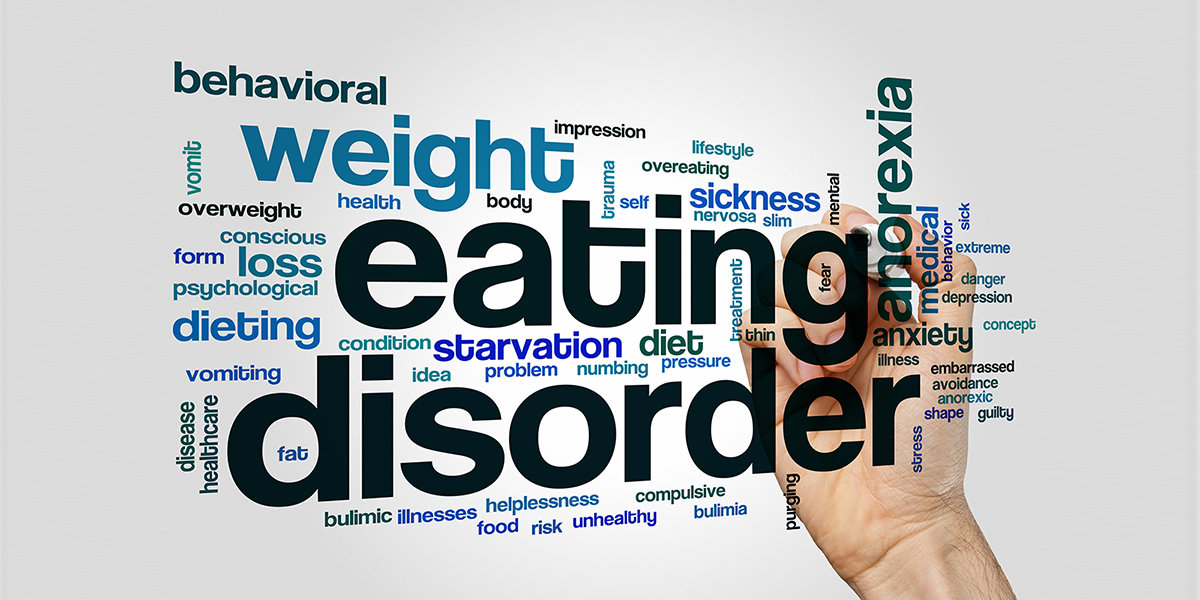Eating disorders are not just about food - they are deeply intertwined with emotional, psychological, and social factors.
The scholarships we provide, enable sufferers to access a multi-faceted support system which encompasses compassionate counselling and therapy services, typically through residential treatment programs lasting from a few days to several weeks. We strive to facilitate a safe space for individuals to freely express their struggles, find comfort in the knowledge that they are not alone and reclaim the lives that have been lost to this debilitating illness.
The most common forms of eating disorder are Anorexia, Bulimia and Compulsive or Binge Eating Disorder but there are other forms too.

Anorexia
Anorexia is characterized by an intense fear of gaining weight and a distorted body image. Individuals with anorexia often restrict their food intake to an extreme level, leading to significant weight loss. They may excessively exercise, use diet pills, or engage in other harmful behaviors to control their weight. People with anorexia may perceive themselves as overweight, even when they are severely underweight. The disorder can have serious physical and psychological consequences.
Bulimia
Bulimia involves a cycle of binge eating followed by compensatory behaviors to avoid weight gain. During a binge, individuals consume a large amount of food in a short period, feeling a loss of control. Afterward, they may engage in behaviors such as self-induced vomiting, excessive exercise, or misuse of laxatives or diuretics to counteract the consumed calories. Unlike anorexia, individuals with bulimia are often within a normal weight range, making the disorder more challenging to detect.
Binge Eating Disorder:
Binge eating disorder is characterized by recurrent episodes of consuming large quantities of food in a short time, accompanied by a lack of control. Unlike bulimia, there are no compensatory behaviors to offset the caloric intake. Individuals with binge eating disorder often eat rapidly, even when not physically hungry, and may feel guilty, ashamed, or distressed afterward. This disorder can lead to obesity and various health complications.
Avoidant/Restrictive Food Intake Disorder (ARFID):
ARFID involves a persistent avoidance or restriction of food intake, leading to inadequate nutrition and weight loss. Unlike anorexia, individuals with ARFID may not have body image concerns or the desire for weight loss. Instead, their avoidance of certain foods may stem from sensory issues, fear of choking or vomiting, or lack of interest in eating.
Other Specified Feeding or Eating Disorder (OSFED):
OSFED, previously known as Eating Disorder Not Otherwise Specified (EDNOS), encompasses eating disorder symptoms that do not fully meet the diagnostic criteria for anorexia, bulimia, or binge eating disorder. This category includes a wide range of disordered eating behaviors and patterns, making it important to seek professional help for accurate diagnosis and appropriate treatment.
It’s important to remember that eating disorders are complex mental health conditions that can have severe physical and emotional consequences. They are not simply a matter of willpower or a desire for attention. People with eating disorders require understanding, support, and professional help to overcome these challenges.
If you suspect that you or someone you know may be struggling with an eating disorder, seeking help from medical and mental health experts is highly recommended. Early intervention and support can significantly improve outcomes and aid in the recovery process.

